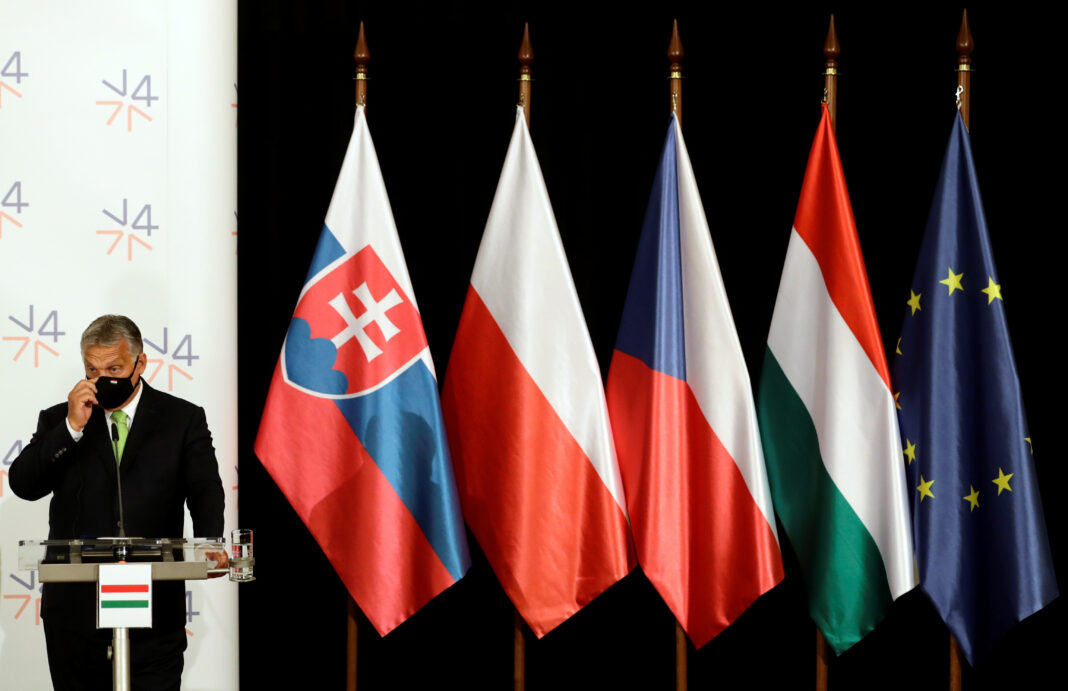During the last V4 Summit under Polish presidency, the Prime Ministers of Hungary, Czech Republic, Poland and Slovakia discussed current achievements and new priorities for the future of the Visegrad Group
On June 30 2021, Polish Prime Minister Mateusz Morawiecki met with his Slovak, Hungarian and Czech counterparts in Katowice, Southern Poland, on the occasion of the last V4 Summit under Polish presidency. At the meeting, the leaders from the four member states took stock of the past year and expressed their thoughts on the future of the alliance.
Achievements
One of the major recent achievements, agreed the Group, has been their continued cooperation during the Covid-19 pandemic. In this regard, Hungarian Prime Minister Orbán praised Poland for its excellent work, despite the most difficult year in history for the V4 Presidency.
Poland took over the presidency on July 1, 2020, in the midst of the pandemic. From the very beginning, the country set itself the goal of a rapid recovery from the crisis, in order to return to normal as soon as possible.
Over the past year, the four countries have been able to rely on each other for support in several aspects.
First, there has always been an effort to facilitate mobility across the borders of the four member countries through the easing of restrictions. Last October, the Hungarian government caused a sensation by excluding V4 citizens from the border-crossing ban, which, at that time, applied to all international arrivals.
Cooperation, however, occurred especially in terms of flow of medical personnel, medical equipment and doses of vaccines, which remained constant throughout the pandemic emergency. Slovak PM Eduard Heger claimed that this has firmed up quadrilateral cooperation as never before.
In October, the V4 Centre for Covid-19 Information Exchange was created, composed of experts who could share knowledge, expertise and useful information for a better management of the pandemic at national and transnational levels.
In addition to the achievements in fighting the pandemic, Morawiecki proudly stated that the Group has now become “a significant force within the European Union”. Exactly 30 years after its founding, noted the Polish PM, the V4 has grown in importance, gaining significant weight within the EU. Morawiecki stated at the press conference at the close of the meeting that this new position of strength now gives the four member states “much more leverage” in the forum.
New priorities
As mentioned, the June summit marked the end of the Polish presidency, which has now been handed over to Hungary. On the occasion, Orbán presented the goals of the Hungarian presidency for the next one-year period.
Orbán affirmed that the motto will now be “V4 Recharging Europe” and that its top priority will be that of stimulating the Visegrad Group’s economies. Concretely, the objectives will be to boost growth, ensure good levels of employment and contain sovereign debt. Closely related to this, there is the need to upgrade the infrastructure that connects Northern and Southern Europe, as well as to keep taxes low in order to attract investments.
However, ‘restart’, as intended by the Hungarian presidency, is not purely economic, but also intellectual. Orbán hopes that the Visegrad countries will participate even more actively in the debates on the future of the EU, collectively and individually.
The Hungarian PM also referred to migration as a central issue for the security of the area, reiterating that the Group’s position remains opposed to any mandatory relocation of migrants.[8]
Not a priority of the Visegrad Group, it seems, is the enlargement of the format to new members.[9] Nonetheless, cooperation with several neighboring states such as Austria, Slovenia and Ukraine continues to remain strong.
During the last V4 Summit under Polish presidency, the Prime Ministers of Hungary, Czech Republic, Poland and Slovakia discussed current achievements and new priorities for the future of the Visegrad Group




